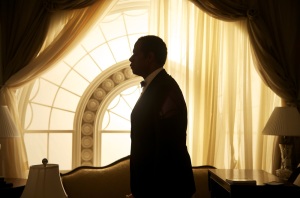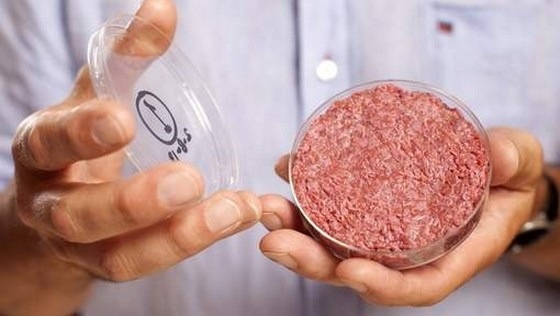Home » africa
Category Archives: africa
Should we forget about slavery?
The following debate first appeared in the Voice Newspaper. Each week, I chair a debate with members of the Writers of Colour collective.
Even before he won Best Picture at this week’s 86th Oscar’s ceremony, British director, Steve McQueen’s mantelpiece was straining under the weight of awards including a Golden Globe and a Bafta.
12 Years a Slave, his presentation of Solomon Northup’s harrowing memoir of brutality under slavery, has everyone talking about this horrific period of human history again.
But is remembering slavery a vital part of understanding the world we live in now or a damaging ball-and-chain which keeps us stuck in the past? (more…)
Can Coca-Cola ‘open happiness’ in Swaziland?
Five years ago, I found my father via Facebook.
I had always known he lived in a small African nation called Swaziland but hadn’t seen or spoken to him since he returned there after a short stay in the UK in the 60s.
My father sadly passed away six weeks before I first stepped foot on Swazi soil but I have been lucky enough to visit the country four times since. I have met seven new siblings, gone to my grandmother’s 100th birthday celebrations, taught in rural schools and got to know something of this verdant, undulant, landlocked little nation.
Swaziland is one of the world’s last absolute monarchies. The present King, Mswati III, has enjoyed total power over his million subjects since his coronation in 1986.
The 45 year-old has a personal wealth estimated at £65m, two private jets, a fleet of luxury cars and last month, married his 15th wife.
Yet he rules over one of the planet’s poorest nations.
Almost 70% of the population lives below the international poverty line and Swaziland has one of the world’s highest HIV infection rates (26%) and the one of the lowest life expectancies (49 years).
Placed strategically between regional powerhouse South Africa and the potent Mozambique, resource-rich Swaziland doesn’t have to be poor.
But it’s hard to swim in a stagnant pool and the monarch’s tight grip on power has led to cronyism and an ineffective government.
Read the rest of this feature on the Guardian’s website
Black history gets the Hollywood treatment
Hollywood has a very dubious history when it comes to telling the stories from Black history.
For years America’s guilt at the way it has treated it’s Black population saw Hollywood airbrush Black people out of many of the stories it told.
If Native Americans were vilified in many Westerns, Black people were pretty much ignored. The almost all-white Wild West presented in these films bore little resemblance to the reality in which almost a quarter of cowboys were Black and even more were Hispanic.
Quentin Tarantino’s Django Unchained (2012) was widely credited with giving a more realistic view of the Wild West, and while it was a hugely entertaining and successful film, Django’s tale still had the familiar ring of the poor Black man being liberated by the kindly white man.
The ‘white saviour’ narrative has been repeated over and over again and has allowed stories that America finds difficult to tell seem more palatable.
For a film to work for mainstream audiences the perceived wisdom seemed to be that the stories of ethnic minorities need to be told through the lens of a character white audiences can relate to. Using the white saviour ploy allows a white audience to watch a film about oppression, even with white oppressors, and align themselves with the good white person and Black ‘victims’.
Read the rest of this feature on the TV Collective.
The Butler serves up a chronicle of the Civil Rights movement
I sat down to watch Lee Daniel’s The Butler, unsure about what sort of film I was about to see.
The film tells the story of Cecile Gaines, a black butler who served under seven presidents at the White House while the battle for Civil Rights engulfed the US.
I feared I was in for another sanitised view of the this tumultuous period of US history with black ‘victims’ nobly shouldering various insults with dignity and honour.
There were easy parallels to draw with The Help, Tate Taylor’s Oscar nominated screenplay, which looked at the lives of black housemaids serving white families in the Southern US during the same period.
While I enjoyed The Help, I was left feeling unfulfilled because the film focused so much on the White Saviour.
Even the title of Lee Daniel’s film brought up unpleasant memories of 80s Soap spin-off Benson, which saw Robert Guillaume play the eponymous wisecracking butler who had ideas above his station and on hearing the doorbell would frequently enquire ‘you want me to get that?’, infuriating his owners (sorry I mean bosses) the Tates.
What I got was in fact a nuanced look at the civil rights era through the eyes of Gaines, tenderly played by Forest Whitaker.
The film, based loosely on the life of former White House head butler Eugene Allen, chronicles Gaines’s journey from the cotton fields of Georgia to Obama’s Oval Office.
Daniels, the director behind the excellent Monster’s Ball, The Woodsman and Precious, uses Gaines as a symbol of the African American generation that came before the revolutionaries of the 60s and 70s.
In the opening scenes of the film, a young Gaines watches as his mother is raped and his father is shot dead by a white cotton field owner.
We later hear Gaines describe the world he eventually finds beyond the cotton fields.
“No one would give me a job or food, no place to sleep. Any white man could kill anyone of us at anytime, and not be wanted for it. The law wasn’t on our side, the law was against us. I was hungry all the time.”
Much of the film’s drama revolves around the tension between Gaines and one of his two sons, Louis, played by British actor David Oyelowo.
Louis represents the civil rights generation. He’s ashamed of his father’s bowing and scraping and his father sees him as a hot-head who is doing nothing but bringing trouble down on the family and the black community in general.
Looking back, it’s easy to take Louis’s side in this argument and dismiss Cecil as an Uncle Tom who was too afraid to stand up and demand his rights in the way that his freedom bus riding, Martin Luther King following, Black Panther son does, but this would be a mistake.
The film shows just how perilous it was to be black in the US in the first half of the 20th Century. Young Gaines and his generation had to endure the Strange Fruit of black bodies swinging from trees and the hand-to-mouth existence outside the quasi-slavery cotton fields.
It was their suffering that emboldened their children’s generation and gave birth to the church groups that cradled much of the early movement.
As Gloria Gaines angrily tells her son at the end of dinner scene, “Everything you are and everything you have is because of that Butler”.
Criticising this generation for not standing up to their oppression is as ridiculous as black people who now say, “I would never have been a slave, I just wouldn’t have put up with it”.
While those people definitely existed, most didn’t exist for very long.
The film also shows that Gaines eventually grows to appreciate the struggle that his son goes through. He realises that he should have supported him more and judged him less.
This is a message for both generations. We see how both relied on the other and that the political earth is constantly shifting beneath our feet.
The film, which also stars Oprah Winfrey as Gaines’s long suffering, sometime cheating, wife Gloria; Cuba Gooding Junior as his wisecracking fellow butler Carter; and Terence Howard as his cuckolding friend Howard, topped the US Box Office when it was released there in August.
Much of the interest was in the portrayal of the seven presidents that Gaines serves under.
A host of stars including Robin Williams as Eisenhower, James Marsden as JFK, John Cusack as Nixon and Alan Rickman as Reagan help give the story its historical context.
Most are shown either to grudgingly accept the Civil Rights movement or to be against it.
Ronald Reagan’s son Michael, has accused the film of portraying his dad as a racist because of his resistance to sanctions against apartheid South Africa.
Reagan’s supporters point out he and Thatcher were worried about communist elements in the ANC which they feared would turn the country into another Cuba if the regime were brought down.
I believe you can never call anyone a racist because you can’t know another person’s soul. You can only judge their actions.
Whether you call the act of bolstering a regime, which was brutally oppressing its subjects on the basis of their skin colour, simply to ensure US and British companies continued to benefit from the oppression ‘racist’ or not seems a moot point.
These presidents and their various stances on black equality are a sideshow anyway. The film doesn’t claim to be a documentary, it’s a look at the 20th century black struggle in the US.
Another criticism which has a little more depth to it is that the film is yet another presentation of the suffering black people endured in past and is a form of guilt porn for white liberals.
I’d argue there are plenty of films portraying contemporary black life and either glorifying or denigrating the hardships this often involves. Reminding people how these hardships came to be is a good thing.
Louis progresses from a freedom rider, taking the abuse and turning the other cheek, to the much more radical Black Panthers who believed in delivering material benefits for black communities and determined self defence.
“We ain’t getting beat no more”, he tells his parents over a fractious dinner.
Eventually he becomes involved in mainstream politics and helps get Obama elected.
It’s this analogy for the black struggle that I have the most issue with.
The presented narrative is: things were bad, black people grinned and bore it, then they rose up, America saw sense and now we have a black president.
This is far too neat a tale and the ending which sees Gaines walking into the brightly lit doorway of Obama’s Oval Office to meet America’s first black president as if walking through the pearly gates, is an image too far.
No wonder Obama is said to have wept watching the film.
While I realise that this is a tidy way for the film to wrap up, I would have liked to see at least a nod to the continuing struggle.
Without this nod, The Butler feels like it lets modern America, the America of Trayvon Martin and Jonathan Ferrell, off the hook.
It seems to say: “Hey, your folks did all that horrible stuff but you guys voted for a black president, so we’re quits”.
I’m proud to be a member of Writers of Colour, a collective of writers trying to bring more diversity to mainstream media.
Twerking Miley Cyrus and ‘acting black’
When Miley Cyrus appeared writhing around the VMA stage one of the main criticisms levelled at her was that she was stealing from black culture. I argued that culture is there to be shared and appropriated but lamented that Miley chose to mimic a 2D stereotyped form of black culture and that she didn’t even do it well.
Former Hannah Montana sweetheart Miley Cyrus’s gyrating bikini-clad performance at last night’s MTV VMA awards left watching celebrities open-mouthed and set Twitter ablaze.
Miley, the daughter of Billy Ray Cyrus, the wholesome country and western singer with the ‘Achy Breaky Heart’, has been raising eyebrows for the last four years as she moves further and further away from the teenage Disney channel character that set her on the way to becoming a $150m star at just 20.
Her hyper-sexualised set, which included rubbing her butt into Robin Thicke’s crotch and getting extremely personal with an oversized foam finger, drew criticism from feminists for degrading her sex and from some pundits for ‘picking the pocket of black culture’… (more…)
The Esigcaweni Nazarene Primary School – Swaziland
The Esigcaweni Nazarene primary primary school is in rural Swaziland near the southern border with South Africa.
The school educates over 300 children from the Lumbombo region of the country.
Swaziland is one of the poorest countries on earth. More than a quarter of the population (26%) are HIV positive, the world’s highest adult prevalence rate and Global Age Watch says life expectancy there is just 49 years, the fifth worse in the world.
Many of the children who attend the Esigcaweni school have lost either one or both parents to HIV or other illnesses and for many, the meal provided by the school is the only one they will eat all day. (more…)
Serve me up a Frankenburger but go easy on the branding
Yesterday’s announcement that scientists have created the first fully lab-grown burger left many feeling nauseous.
We have an emotional connection to what we put in our bodies and the idea of a burger made on a Petri dish leaves many people cold.
I don’t share this revulsion.
Even when the rules are followed and our food isn’t bulked out with horse or fed its own dead, the way our meat is produced is already pretty vile. (more…)
Dark girls and slavery’s lingering fingerprints
When my beautiful daughter was just eight, she corrected me when I described her to a friend as ‘black’.
“Dad, I’m brown”, she explained. “You’re black, mum’s white and I’m brown”.
While I couldn’t fault her logic, her words caused a strong emotional reaction in me.
It was a mini panic, unexpected and violent. I caught my breath and tried to explain that:
“Although races don’t really exist, the world we live in has conjured them up and the shared life experience you will have with your darker skinned cousins and friends defines you all as black, regardless of skin tone.”
Good luck explaining that to an eight year old.
No argument I came up with, would convince her she was anything other than brown and so I gave up.
Now she’s 22 and would define herself as mixed-race. (more…)
Trayvon Martin and the Fear of a Black Man
“ ‘Not Guilty?’ the filthy devils tried to kill me/ When the news gets to the hood the niggas will be/ Hotter than cayenne pepper/ Cuss, buss, kicking up dust is a must.”
Ice Cube – ‘We Had to Tear This MF Up’
The’ Not Guilty’ verdict for George Zimmerman, the killer of Black teenager Trayvon Martin, confirms a fact that all Black men know, but hoped had changed. The fact that many white people view us as a threat.
It doesn’t matter if the Black man in question is well educated and softly spoken. It doesn’t matter if he has not even finished puberty. We are seen as a threat that must be contained. Trayvon was an unarmed teenager, and George Zimmerman was an heavily set 29 year old with an obvious weight advantage, who also happened to be packing a gun. But still Zimmerman felt that he was the…
View original post 1,292 more words
What the West can learn from Egypt
Egypt’s coup presents the West with a massive dilemma as leaders try to work out how to respond.
Just a year after taking office after the country’s first free election for 30 years, Islamist Mohammed Morsi was unceremoniously removed from power and placed under arrest.
While neither Cameron or Obama will shed a tear at seeing the back of Morsi’s Muslim Brotherhood, they feel they can’t openly support a coup, even one brought about by a popular uprising, for fear of ‘setting a dangerous precedent’. (more…)











